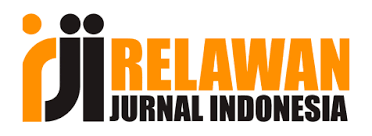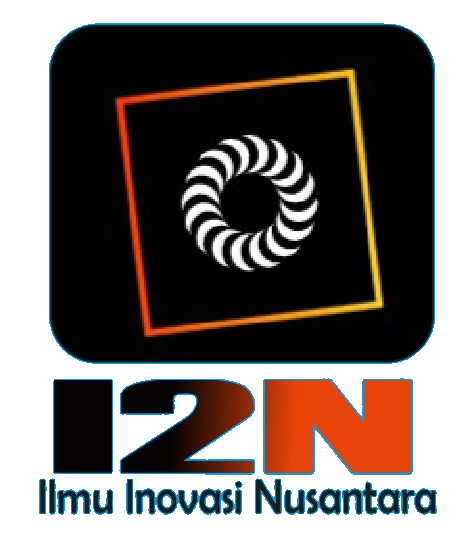Empowering Primary School Teachers: Strategies for Enhancing Informatization Teaching Skills
Kata Kunci:
Primary school teachers, Informatization teaching ability, Promotion strategy, ICTAbstrak
This study analyzes the information-based teaching abilities of primary school teachers in mathematics and English subjects, focusing on the factors influencing their ICT teaching capabilities. Using a mixed-methods approach, the study employs a combination of questionnaire surveys and interviews to collect both quantitative and qualitative data. It investigates the demographic profiles of teachers, the current situation and challenges related to ICT teaching, and the factors affecting their ICT proficiency. Additionally, it explores strategies to enhance ICT teaching abilities, evaluates the effectiveness of these strategies, and provides recommendations for improving ICT integration in primary education. The findings reveal that teachers' ICT teaching abilities are influenced by factors such as age, sex, and teaching experience. Younger teachers, particularly those aged 21-31, are more familiar with technology, while older teachers require structured professional development. Common challenges include technical problems, insufficient training, and limited access to resources. The study highlights that teacher training, educational policy support, and resource accessibility are crucial factors influencing ICT teaching effectiveness. Key strategies for enhancing ICT teaching abilities include structured professional development, collaborative learning, and improved resource accessibility. The implementation of these strategies has positively impacted ICT integration, but challenges related to resources and continuous professional development remain. Furthermore, the study reveals that ICT-related challenges are consistent across demographic groups, suggesting the need for institution-wide interventions. Factors such as teacher training mechanisms and policy support did not significantly vary across demographic profiles, indicating that systemic factors are more influential than individual characteristics
Referensi
Agyei, D. D., & Voogt, J. M. (2011). Exploring the potential of the will, skill, tool model in Ghana: Predicting prospective and practicing teachers’ use of technology. Computers & Education, 56(1), 91–100. https://doi.org/10.1016/j.compedu.2010.08.017
Akçayır, G. (2017). Why do faculty members use or not use social networking sites for education? Computers in Human Behavior, 71, 378–385. https://doi.org/10.1016/j.chb.2017.02.028
Altan, B. A., Yorulmaz, A., & Karalar, H. (2024). Modelling primary school teachers’ acceptance of distance-based educational technologies: A post-pandemic perspective. Education and Information Technologies, 29, 16499–16523. https://doi.org/10.1007/s10639-024-12509-1
Aslan, A., & Zhu, C. (2016). Influencing factors and integration of ICT into teaching practices of pre-service and starting teachers. International Journal of Research in Education and Science, 2(2), 359–370.
Becker, H. J. (2000). Findings from the Teaching, Learning, and Computing Survey: Is Larry Cuban right? Education Policy Analysis Archives, 8(51).
Chapman, B. F., & Gaytan, J. A. (2009). Impact of post-secondary business teacher educators' employment characteristics and innovation factors on their adoption of current computer technologies as a pedagogical tool. Journal of Research in Business Education, 51(3), 137–151.
Demmans Epp, C., Phirangee, K., Després-Bedward, A., & Wang, L. (2017). Resourceful instructors and students: Overcoming barriers to integrating mobile tools. In R. Power, M. Ally, D. Cristol, & A. Palalas (Eds.), IAmLearning: Mobilizing and Supporting Educator Practice. International Association for Mobile Learning.
Desimone, L. (2009). Improving impact studies of teachers’ professional development: Toward better conceptualizations and measures. Educational Researcher, 38(3), 181–199.
DFEE. (2003). The use of ICT in subject teaching—Expected outcomes for teachers in England, Northern Ireland & Wales. http://www.englishschoolsfoundationeduhk/IT inset/TTA/Tout.htm
Drent, M., & Meelissen, M. (2008). Which factors obstruct or stimulate teacher educators to use ICT innovatively? Computers & Education, 51(1), 187–199. https://doi.org/10.1016/j.compedu.2007.05.001
Ertmer, P. A. (2005). Teacher pedagogical beliefs: The final frontier in our quest for technology integration? Educational Technology Research and Development, 53(4), 25–39.
Fullan, M. (1992). Successful school improvement: The implementation perspective and beyond. McGraw-Hill Education.
Gao, Y. (2020). The practice and exploration of the hybrid English teaching model for postgraduates. 2020 Conference on Educational Science and Educational Skills (ESES2020).
Goktas, Y., Gedik, N., & Baydas, O. (2013). Enablers and barriers to the use of ICT in primary schools in Turkey: A comparative study of 2005–2011. Computers & Education, 68, 211–222. https://doi.org/10.1016/j.compedu.2013.05.002
Guan, Y.-F. (2015, January 10–11). Exploration of higher vocational logistics teaching mode based on the modern education technology. 2015 International Conference on Management Engineering and Management Innovation (ICMEMI-15), Changsha, China.
Gundel, E., Piro, J. S., Straub, C., & Smith, K. (2019). Self-efficacy in mixed reality simulations: Implications for preservice teacher education. The Teacher Educator, 54(3), 244–269. https://doi.org/10.1080/08878730.2019.1591560
Gurer, M. D. (2021). Examining technology acceptance of pre-service mathematics teachers in Turkey: A structural equation modeling approach. Education and Information Technologies, 26(4), 4709–4729. https://doi.org/10.1007/s10639-021-10493-4
Habibi, A., Yusop, F. D., & Razak, R. A. (2020). The dataset for validation of factors affecting pre-service teachers' use of ICT during teaching practices: Indonesian context. Data in Brief, 28, 104875. https://doi.org/10.1016/j.dib.2019.104875
Hattie, J. (2009). Visible learning: A synthesis of over 800 meta-analyses relating to achievement. Routledge.
Hu, Z., & McGrath, I. (2012). Integrating ICT into College English: An implementation study of a national reform. Education and Information Technologies, 17(2), 147–165. https://doi.org/10.1007/s10639-011-9153-0
ISTE. (2008). ISTE standards for teachers. http://www.iste.org/standards/iste-standards/standards-for-teachers
Kang, S. A. (2017). A study of teaching plan for the physical activity using ICT.
Koehler, M. J., Mishra, P., Hershey, K., & Peruski, L. (2004). With a little help from your students: A new model for faculty development and online course design. Journal of Technology and Teacher Education, 12(1), 25–55.
Korthagen, F. A. J. (2004). In search of the essence of a good teacher: Towards a more holistic approach in teacher education. Teaching and Teacher Education, 20(1), 77–97. https://doi.org/10.1016/j.tate.2003.10.002
Kostaki, S. M., & Linardakis, M. (2024). Revealing primary teachers' preferences for general characteristics of ICT-based teaching through discrete choice models. Education and Information Technologies. https://doi.org/10.1007/s10639-024-13182-0
Le, L., & Wang, J. (2004). Survey and analysis of Sichuan rural education informatisation construction. China Distance Education, (09S), 5. https://doi.org/10.3969/j.issn.1009-458X.2004.17.016
Li, Q., & Ma, X. (2010). A meta-analysis of the effects of technology on students’ mathematics achievement. Educational Technology Research and Development, 58(5), 567–580.
Li, S., Li, H. T., Shi, X. X., Hu, M., & Geng, X. N. (2015). Discussion on the dilemma and outlet of deep integration of ICT and education. China Information Technology Education, (21), 68–71. https://doi.org/10.3969/j.issn.1674-2117.2015.21.029
Liang, Z., Wang, Y., Zhang, H., & He, L. (2017, December 7–9). Relationships of TPACK and beliefs of primary and secondary teachers in China. 2017 International Conference of Educational Innovation through Technology (EITT), Osaka, Japan.
Lim, C. P., Chai, C. S., & Churchill, D. (2011). A framework for developing pre‐service teachers’ competencies in using technologies to enhance teaching and learning. Educational Media International, 48(2), 69–83. https://doi.org/10.1080/09523987.2011.576512
Liu, X., Xu, Y., & Pange, J. (2016). Teachers’ use of PowerPoint in kindergarten: An empirical investigation in China. Education and Information Technologies, 21(2), 425–441. https://doi.org/10.1007/s10639-014-9330-z
Ma, X., Zhang, X., Li, S., & Fan, C. (2020). Practice and research on the teaching strategy of "semi-finished product processing" oriented to knowledge system construction. Advances in Social Sciences Research Journal, 7(8), 343–359. https://doi.org/10.14738/assrj.78.8828
Min, C., Ju, T. R., Li, L. J., & Mei, Y. X. (2021). Research on the teaching strategy of middle school chemistry under the concept of wisdom education. Science Innovation, 9(3), 107–113. https://doi.org/10.11648/J.SI.20210903.16
Mishra, P., & Koehler, M. J. (2006). Technological pedagogical content knowledge: A framework for teacher knowledge. Teachers College Record, 108(6), 1017–1054.
Möller, D. P. F., Haas, R., & Vakilzadian, H. (2013). Ubiquitous learning: Teaching modeling and simulation with technology.
O'Malley, C., Veldhuis-Diermanse, H., & Dillenbourg, P. (2013). The impact of technology on the cognitive skills of students. Journal of Computer Assisted Learning, 29(2), 89–99.
Postholm, M. B. (2020). Premises and promises for expansive learning in teacher education.
U.S. Department of Education. (2017). Reimagining the role of technology in education: 2017 National Education Technology Plan update. Office of Educational Technology.
UNESCO. (2011). UNESCO ICT competency framework for teachers. http://unesdoc.unesco.org/images/0021/002134/213475E.pdf
Vygotsky, L. S. (1978). Mind in society: The development of higher psychological processes. Harvard University Press.
Wang, D., Wang, H., Zhang, W., Wang, H., & Shen, X. (2020). Research on online teaching in the period of suspending classes without stopping learning. Modern Educational Technology, 30(03), 12–18.
Wasson, B., & Hansen, C. (2015). Data literacy and use for teaching. Routledge.
Xie, Y., & Li, B. (2004). Problems and suggestions related to the informatisation of rural primary and secondary education. China Educational Technology, (08), 25–27. https://doi.org/10.3969/j.issn.1006-9860.2004.08.006.
Unduhan
Diterbitkan
Cara Mengutip
Terbitan
Bagian
Lisensi
Hak Cipta (c) 2025 Jing Zhang, Jesse Balinas

Artikel ini berlisensiCreative Commons Attribution-ShareAlike 4.0 International License.














